July 31st, 2018, the Centers for Medicare & Medicaid Services (CMS) announced the final rule for the skilled nursing facility (SNF) prospective payment system (PPS) – including – Patient-Driven Payment Model (PDPM). There were no significant changes in the final rule as compared to the proposed rule. We have highlighted key takeaways below.
- There will be a market basket increase of 2.4% ($820 million) – Effective October 1, 2018.
Patient-Driven Payment Model (PDPM) – Effective October 1, 2019
- PDPM will be a major shift away from volume-based services (RUG-IV) with the new focus being value-based services and is designed to treat the needs of the whole patient.
- Increased emphasis will be placed on the complexity of care delivered.
- CMS estimates provider paperwork will decrease by 80% over 10 years (!)
- Therapy minutes are essentially a thing of the past.
- There will be a combined limit of 25% on group and concurrent therapy services.
- Section GG’s use to determine a patient’s function was finalized with some modifications.
- The Interim Payment Assessment (IPA) is now an optional
- There will be no transition or overlap of payment models. “Providers would bill under RUG-IV for all days up to and including September 30, 2019, and then bill under PDPM for all days beginning October 1, 2019. Further, RUG-IV assessment scheduling and other RUG-IV payment-related policies would be in effect until September 30, 2019. Beginning on October 1, 2019, all PDPM related assessment scheduling and other PDPM payment-related policies would take effect.”
Our team at Infinity Rehab will continue to read through the 400+ pages of the final rule, examine the long-term ramifications to therapy providers and SNF operators, and share our analysis to help all of us prepare and succeed under these new rules. In the short-term, consider these five steps Avalere Health suggests SNFs and therapy providers should begin taking as soon as this September:
- Review regulatory and compliance requirements for PDPM.
- Quantify the impact of PDPM.
- Revise care plans for key patient types to ensure compliance.
- Staff a certified ICD-10 coder.
- Pilot new care plans and documentation requirements.
Infinity Rehab’s approach is to provide REASSURANCE to you that you will be prepared for the new payment model. We will partner with you to develop a STRATEGY that is individualized to your specific market. Lastly, we will identify clinical and operational OPPORTUNITY for your business to thrive during this industry change.
I invite you to contact me at any time with your questions regarding PDPM and to receive a customized analysis on the impact PDPM will have on your business.
Thank you.
________________________________
Michelle Jabczynski, MS, CCC-SLP – Director of Compliance and Strategy
MLJabczynski [at] infinityrehab [dot] com
Michelle has led an extensive career in the long-term, sub-acute, adult rehab setting as a Speech Language Pathologist since she earned her Master’s from the University of Wisconsin in 2005. She joined Infinity Rehab in 2012 as an Area Rehab Director and most recently served as Home Health Director for where she achieved operational and financial excellence in both roles before becoming Infinity Rehab’s Director of Compliance and Strategy.
Michelle attests that her primary core value is curiosity. She will apply that trait wholeheartedly to the strategy component of her role as she helps Infinity Rehab tactically maneuver within the regulatory world and continue to grow the organization as a premier leader of post-acute care services.






